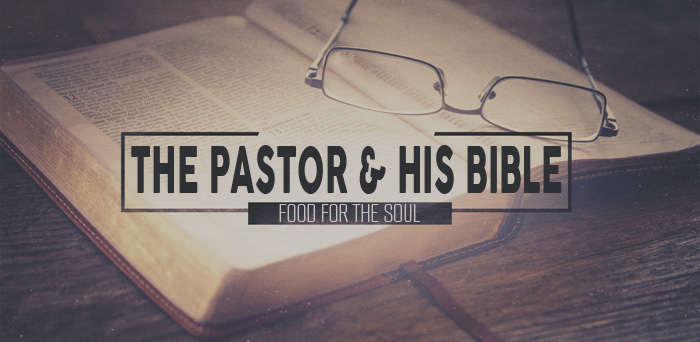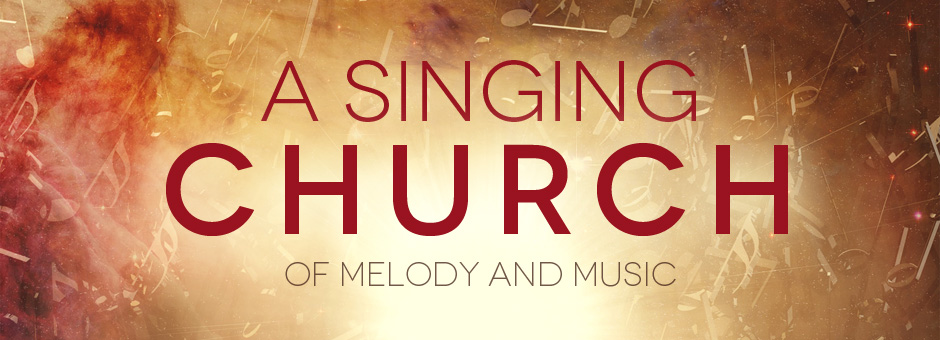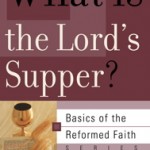
An admission is in order: this post’s title has a fair amount of tongue in its cheek. Countless texts compete for the title’s reward. I mean for the title’s cheekiness to provoke examination—particularly among pastors.
“What Verse,” You Say?
The text I have in mind is Colossians 3:16: “Let the word of Christ dwell in you richly, teaching and admonishing one another in all wisdom, singing psalms and hymns and spiritual songs, with thankfulness in your hearts to God.” Its twin is Ephesians 5:19, where Paul commands being filled in the Spirit, which means—in part—”addressing one another in psalms and hymns and spiritual songs, singing and making melody to the Lord with your heart.”
For this post, I’m leaving aside historical arguments that “hymns and spiritual songs” are also references to biblical psalms. I’m not urging exclusive psalmody, but I am arguing for inclusive psalmody. I am simply stating, on the basis of Colossians 3:16 and Ephesians 5:19, that God expects His churches to sing the psalms from His word. What do you think? Is that a fair declaration? I believe so.
Yet, how many evangelical churches today sing the Psalms?
The Lay of the Land
I recently saw a pastor of a massive and influential church say, “Let the Psalter the be the soundtrack of your life.” However, ne’er is a psalm sung in his church’s gathered worship.
The pastor’s declaration and his church’s reality reveal two things I see in evangelical churches today.
First, we have seen a genuine resurgence of devotion to the Psalms. Praise the Lord! I first began to notice this when, in 2008, Union University (a Baptist institution, mind you) hosted a conference on psalm-singing. A few years later, B&H (a Baptist press, mind you) published the addresses as Forgotten Songs: Reclaiming the Psalms for Christian Worship. As is often the case, developments in the academy take a few years to seep into ordinary churches. The much-voiced call for restoring lament in the church’s life (e.g., Rejoicing in Lament) is a consequence of the revived focus on the psalms. So too is Donald Whitney’s work Praying the Bible, which exhorts Christians, “when you pray, pray a passage of Scripture, particularly a psalm.”
Second, precious few churches today sing the Psalms in corporate worship. I’m optimistic that more and more churches will start singing psalms. My experience and observation are that precious few churches are doing so at the moment.
I live in a bastion of the Bible-belt. “Evangelical” churches occupy many corners in my community. There are three mega-churches within five minutes of my home and another dozen smaller congregations. You’d never expect to sing a psalm at any of them on a Sunday.
Lest you think I’m only pointing the finger at other ecclesiastical traditions, let me turn it back on myself. The church I pastor is a member of the PCA. More than anything else, Redeemer’s identity in the presbytery and community is that of a traditional-liturgical church. Any person who knows anything about the history of Presbyterian worship knows that psalm-singing is among our most distinctive features. I attended Redeemer consistently for eight months before being called as senior minister. Although it had a history of sporadic psalm-singing in the past, we never sang a psalm over those eight months. I wonder many Presbyterian churches today likewise have forgotten our biblically-informed tradition.
One of the first adjustments I made to our worship at Redeemer was reintroducing the Psalms for singing. We now sing at least one psalm every week, and it is a delight to hear God’s people sing God’s word.
A Sad Irony
In our zeal against exclusive psalmody, perhaps we have inadvertently promoted exclusive hymnody—or as one brother I know put it, “exclusive chorusody.”
Too many of our churches today are ignoring God’s hymnbook, which has been at the heart of every major branch of Christianity’s worship tradition. Let us repent of loving to sing our words more than God’s words. Let us pray for the ample and regular singing of psalms—along with Scripturally-sound hymns—in our gathered worship services.
Resourcing Recovery and Reform
Dietrich Bonhoeffer said, “Whenever the Psalter is abandoned, an incomparable treasure vanishes from the Christian church. With its recovery will come unsuspected power.” John Chrysostom, that golden-mouthed preacher, asked,
Do you wish to be happy? Do you want to know how to spend the day truly blessed? I offer you a drink that is spiritual. This is not a drink for drunkenness that would cut off even meaningful speech. This does not cause us to babble. It does not disturb our vision. Here it is: Learn to sing Psalms! Then you will see pleasure indeed. Those who have learned to sing with the psalms are easily filled with the Holy Spirit.
Every gospel pastor longs for Christ’s word to dwell deeply in his church. Every pastor prays for Christ’s spirit to fill the church. Singing psalms is one of God’s ordained means for both blessings to grow in your congregation.
Here are some resources pastors can use for further study:1
- C. Richard Wells and Ray Van Neste, editors, Forgotten Songs: Reclaiming the Psalms for Christian Worship is the product of the 2008 series at Union University exploring the Psalms.
- John Witvliet’s The Biblical Psalms in Christian Worship: A Brief Introduction and Guide to Resources is a treasure. Witvliet surveys all of the significant Christian communions, other than Eastern Orthodoxy, concerning the use of the Psalter in worship. His resource lists are focused and substantial. Pastors should continue to watch for psalm-singing resources from the Witvliet-directed Calvin Institute of Christian Worship.
- John Witvliet, Martin Tel & Joyce Borger’s Psalms for all Seasons: A Complete Psalter for Worship covers “the history, reception, and practice of psalm use and contains all 150 psalms, most in multiple formats.”
- Anthony Selvaggio and Joel Beeke, editors, Sing a New Song: Recovering Psalm Singing for the Twenty-First Century. Multiple contributors from Presbyterian and Reformed churches cover psalm- singing in Scripture and church history. They strongly argue for the place of the Psalter in the worship of the church. The essays are short, well-written, and focused on the life of the church. Study groups and worship committees would do well to read this together.
Some shorter pieces encouraging the singing of Psalms in corporate worship:
- Terry Johnson’s essay in honor of James Montgomery Boice, “Restoring Psalm Singing to Our Worship” in Give Praise to God: A Vision for Reforming Worship demonstrates that even the Presbyterians can have difficulty using the Psalter in worship. Johnson’s concern for Bible-saturated worship is commendable to the People of the Book.
- Old Testament scholar Gordon Wenham answers the question of his chapter titled “What Are We Doing Singing the Psalms?” in his book The Psalter Reclaimed: Praying and Praising with the Psalms. In a few short pages, he ranges over the Bible, church history, speech-act theory, and finally back to the Psalms themselves as he attempts to coax the Christian reader into a psalm-singing frame of mind.
——————————————-
- The comments on each resource are adapted from Ray Van Neste’s Read, Pray, Sing. ↩








